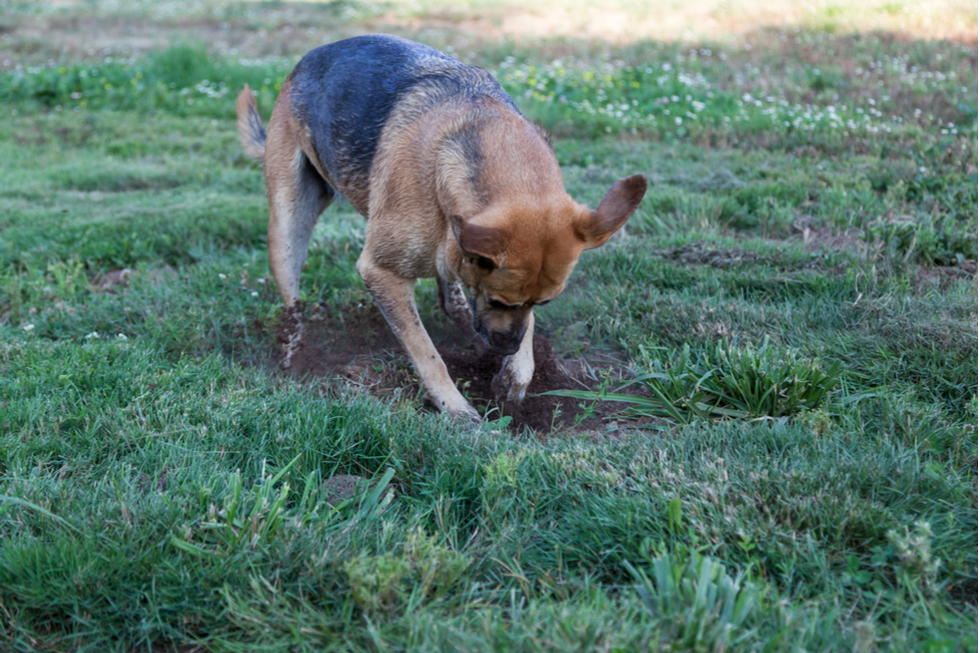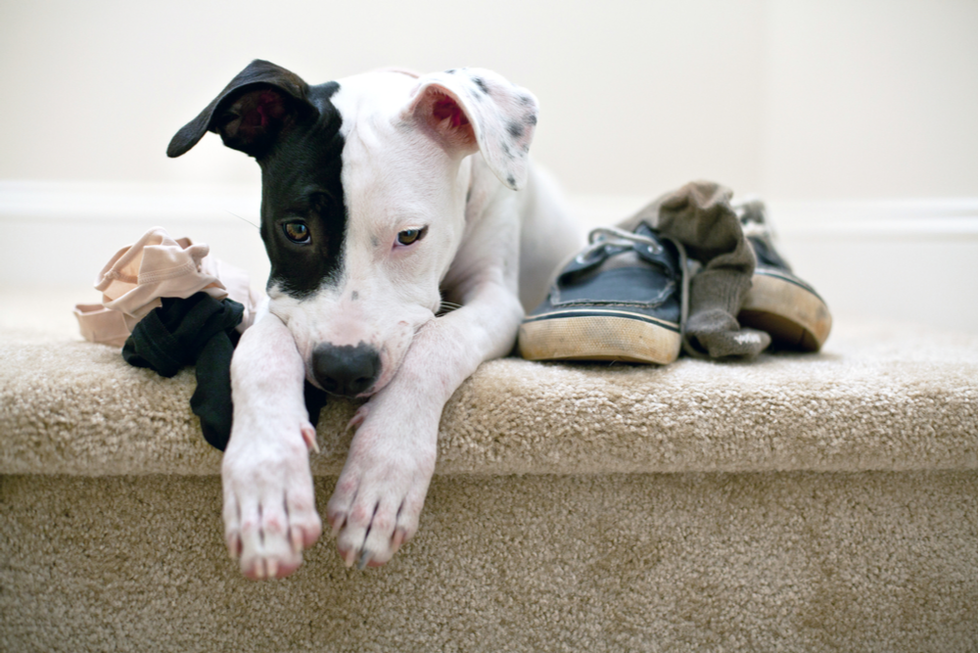3 Common dog behaviour issues and how to fix them
We all love our dogs, but there are some behaviours that can be difficult to live with. Most of them are completely natural, however if they are excessive, they can be annoying or destructive. It’s important to note that you should never punish your dog for acting, well, like a dog however some behaviour issues can be managed, while others may need help from a vet or dog trainer.
Here are 3 common behaviour issues in dogs and how to manage them.
Barking
Dogs use barking to communicate and express emotions, but excessive barking can become a nuisance and be considered a behaviour problem.
Why do dogs bark?
There are several reasons why your dog is barking excessively. Some of these include:
Health issues - they could be in pain.
Fear - they could be scared of a person, situation or item.
Ageing - dogs can develop dementia or other cognitive issues. Even deafness or blindness can cause them to be more vocal.
Territorial - they could be trying to defend their home from “intruders” which include strangers or other dogs
Boredom - your dog could be bored once you leave the house or when in the backyard.
Separation anxiety - your dog is lonely and is anxious when no one is home. Dogs will usually display other symptoms like chewing or digging if they have separation anxiety.
How do I help my dog and manage the barking?
If you’ve noticed your dog is barking more than usual, or if you’ve had complaints from neighbours, it could be time to take your dog to the vet. The vet will be able to determine whether there is an underlying health issue which could be causing your dog’s barking or a behavioural issue which could be resolved by some dog training or, in extreme cases, medication.
Dogs who are bored in the backyard or inside the house can become reactive to sounds and other stimuli. Barking is often a way they communicate their frustration or anxiety. Enrichment and mental stimulation is a great way to help your dog focus on other things and lower arousal levels. Training your dog to be calm around the triggers can also help but sometimes management is the better option eg. Covering windows.
We do not like the use of collars or other deterring equipment to stop dogs from barking as they can cause them harm or create more unwelcome behaviour. These types of equipment silence the communication but do not solve the problem. Communication should never be suppressed. Instead, we discover why the dog is barking and help them through it.
Digging
Helping out with the landscaping is not what you may have had in mind when you left your dog outside. Finding holes in your garden can be extremely frustrating but can be easily fixed.
Why do dogs dig?
If your dog is digging in your garden it could be because they are:
Bored - if your dog has nothing to do all day, it’s no surprise that they will create their own entertainment in your garden.
Trying to escape - dogs are pack animals and if left alone for long periods, might try and seek out company by escaping. This could also be a sign of separation anxiety.
A specific breed - some breeds like Terriers were bred to dig. Other breeds are working dogs and need a job to do.
Young - puppies and adolescents may not know that you don’t want them digging or they are trying to find a way to release their energy.
Copying you - if you’ve been gardening recently, your dog might just be copying what they’ve seen you do.
Too hot - if your dog likes to lie in the holes they dog, they might be too hot.
How do I stop my dog from digging?
If you have ruled out separation anxiety, there are some simple strategies to stop your dog digging in the garden. These include:
Giving your dog more toys to play with. Kong’s and enrichment toys filled with treats will keep them occupied for a long time.
Walking your dog every day or twice a day and do training sessions with them to keep them stimulated.
Sending your dog to doggy daycare.
Cornering off certain areas of the garden.
Providing your dog with adequate shade or a paddling pool to cool off in.
Often, the best way to stop your dog digging in your garden is to encourage them to dig in a designated area. A kiddy pool filled with sand is a great place for your dog to dig. Buried treats will reward them for digging in that spot and they’ll soon learn it’s the best choice and the behaviour will become practiced.
Chewing
In place of hands, dogs often use their teeth to explore their surroundings which can come at the expense of your favourite pair of shoes.
Why do dogs chew?
If your dog is chewing objects other than their toys, it might be because of the following:
Separation anxiety - if items are being chewed when you’re not home, your dog could have separation anxiety.
Boredom - if your dog has nothing to entertain them, they might look for the nearest item and start chewing.
Hunger - if your dog is chewing items related to food (like packaging or utensils) it could be because they are hungry.
Lack of understanding - to a dog, there is little separation between a toy and a shoe and your dog might not understand which is allowed to be chewed with and which isn’t.
How do I stop my dog from chewing?
It’s good to see the vet if you suspect your dog has separation anxiety which could be the cause of chewing (along with digging and barking). If they don’t, you can try these methods:
Give your dog chicken necks, Kongs with peanut butter and other treats and toys to encourage them to focus their behaviour on those.
Remove all at risk items.
Keep your dog active and walk them more.
Take them to doggy daycare to keep them occupied.
Work on fun games to work on arousal control such as tug of war and teaching your dog “give” by always swapping with a treat.
What you need to remember is that barking, digging and chewing are all natural behaviours. We don’t want to use outdated negative and forceful methods as this can cause further fear and anxiety in our pets. Using positive reinforcement and fear free methods will improve your dog’s confidence, lead to a strong and healthy relationship with you and help them make the right choices!
If your dog’s behaviour is excessive and nothing will get them to stop, it might be time to see a vet. Behavioural issues are very common and your vet can help identify whether they may need to see a behavioural specialist or whether their issues are medical in nature. If you suspect your dog’s behaviour is abnormal, book an appointment with one of our experienced vets today!



